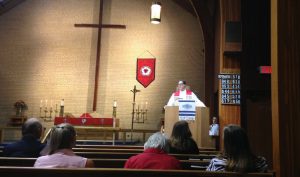
Fast coming up on the 500th Anniversary of the Lutheran Reformation, what is the Reformation in its present form – right here and right now? To set the stage, I will use a recent visit to Albuquerque, NM when I was asked to be the guest preacher at a joint circuit Reformation Service last year. This was on the advent of the 2017 Reformation celebration, as it kicked off the yearlong celebration. It had been a little while since the Sandia circuit hosted this service so it was quite an honor, and of course I enjoyed the area very much.
ABQ is very reflective of the mission field that is the United States. It has wonderful and exotic culture and food and landscapes in a very diverse community. It is an amazing place to visit. And yet it has all the modern-day challenges that we face in this present-day reformation as well. For example, just across the street was the Pueblo Cultural
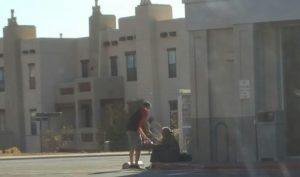
Center where you can learn how to honor Mother Earth and worship the things of nature. When I stopped to get gas, I was greeted by a homeless man in need of food and drink and spiritual care.
When I went out to lunch in a nice historic restaurant there was a group talking at the table next to us. They were attendees of a Christian church conference, who were discussing some of the topics in the breakout sessions. And they were speaking loudly so all could hear… but there wasn’t much talk of Jesus. It was about the new “constructs and dynamics” in what amounted to the new sexual revolution being embraced by the church. Talk that was as spicy as the local green chiles, and yet it was more than discussion, it was basically a confession of faith.
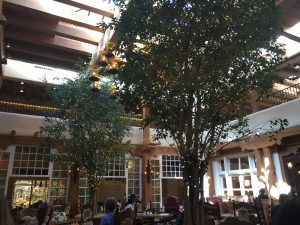
Upon arriving before Sunday services at our MissionField: USA church plant, St Andrews, we needed to clean up the mess left from the party that took place on Saturday night in the strip mall. This is a gritty urban setting, poverty is evident, along with the hopelessness that it brings with it. So too, the community is primarily Hispanic, and like many urban cores, ministries there seem to come and go. And so hopelessness, poverty, and crime come with the territory in much of MissionField: USA.
Indeed the cities of the US represent some of the greatest mission fields on planet earth: the world is at our doorstep, people are in desperate need of hope, diverse urban pioneers are moving back within city limits in droves. But are there similarities to the Reformation from 500 years ago in Europe? Upon his visit to the holy city of Rome, Dr. Luther was certainly disillusioned by what he discovered there. It was a time in the church when forgiveness was for sale to support a towering bureaucracy, works righteousness had become enmeshed in the fabric of the church and gross and scandalous sin was openly occurring even amongst the leaders of the church. Luther could not remain silent anymore, not only because of the corrupt nature, but also the impact it was having on the souls that were entrusted to his care.
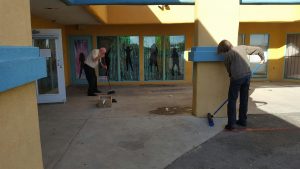
People today are still quite skeptical of the organized church, there is no shortage of scandal, there is no shortage of confusion in the confession of the church, our culture becomes more and more secularized – as even many in the church are rebelling against the Word of God. But it is in this context, that we must still go back to the material principle, the foundational doctrine that set Martin Luther free, that is – justification by faith. We cannot underestimate the gravity of what it is to offer this sick and dying world a clear conscience again, to bring peace and joy.
So many in the Western world are in despair: they turn to drugs and alcohol to find relief, they look to therapeutics to help them bury their guilt, their relationships are fractured, they worship earthly idols. And if the Lutheran church is to continue to be the herald of this true confession of faith alone, grace alone, scripture alone, Christ alone – then the number of heralds are in decline. It is wonderful that the LCMS has over 2 million members and there is a desire to strengthen and grow our existing membership. And yet this still means there are millions upon millions upon millions who dwell in darkness and are lost sheep who will be devoured by the wolf. Millions who are there in our temples, and synagogues, and board rooms, and soccer fields, and sports stadiums, and class rooms.
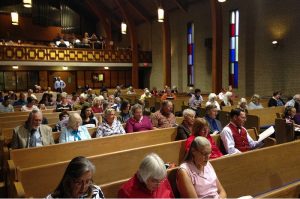
But what does this have to do with the Reformation or heritage of theological discourse? If we were to look also at the current theological trends today in the church, there appears to be much theological dichotomy. A pitting of mission against doctrine, Law against Gospel, truth against love, justification against sanctification, caring for the flock against loving the lost, clergy vs laity in mission… and it can certainly lead to extremes. On the one side, a complete loss of our Lutheran identity in mission, and on the other a loss of mission in our understanding of the Body of Christ. Unrecognizable as the Lutheran Church or purifying the church out of existence – is at the heart of much debate.
And yet what does this dichotomy ultimately result in? Division. A division that would seek to grind new missions to a halt. Indeed, the Reformation begins with repentance, and a quest to stand upon the Word of God to reveal to us the forgiveness of sin in Jesus Christ. And, also, the proclamation that declares us righteous. But division will only hamper our witness and life together. So for the present Reformation it will require us to find concord that we might be united in mission to care for the flock and to reach the lost in places like ABQ and across America.
The present reformation is still all about Jesus, it is about the Gospel being rightly taught and the Sacraments being rightly administered, orthodoxy – even in the midst of the difficult terrains of MissionField: USA. Which includes those who worship false gods or have made science into a religion, those fallen into despair or addiction or homelessness, those who have strayed far from the Word of God in the name of tolerance, those divided across racial and ethnic lines… the reformation is about correcting our confession and making that confession even into the margins and amongst our persecutors.
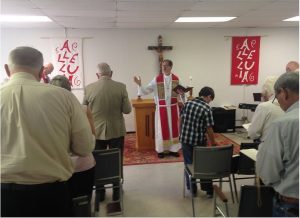
While church planting and church revitalization may seem to be only concerned with new mission in new frontiers, to be sure, it is also a continuation of the reformation of the Christian church. In this 500th year of the Reformation, we see that here in the US, there is indeed much confusion and a shadow that covers over the Gospel as in the past. The very same confession of faith that was brought into the light all those centuries ago is now needed as much as ever in these modern times. And wherever this seed of the Lutheran witness is planted, it is reformational by its very nature. Faith alone, Grace alone, Scripture alone… Christ alone… is that which is most desperately needed by those broken by sin in the US. And by the Word of God, the LCMS Church in the US will find renewal again in the difficult days ahead.
This as a watershed moment in a new frontier: to reach into the heart of the city, to have a pivotal role in racial reconciliation in America, to welcome those coming into our nation, while reaching back into an era of witnessing amidst the skeptical, and even persecutors. As we turn the chapter, it will be all hands on deck to support our missions and our missionaries who will be pioneers of global mission work right here in our own backyard. This is not institutional preservation… it is being faithful to our call to reach the least and the lost!
It is so important then to hold to a Lutheran identity while at the same time reaching out to people who are least like us now in the LCMS. The world is at our doorstep even if the number of German immigrants has diminished since our beginnings. We live in a new USA with its own set of challenges, but it has also afforded us greater opportunities for the church in God’s mission. This will of course require a massive shift in priorities and investment, but this initiative to start new missions is an appropriate contribution to those who are serious about the reformational effects of planting the seed of the Gospel in new fields before the coming of the final harvest. The reformation exhorts us to not only be faithful to our Lutheran confession of faith, but also to be faithful to our callings to reach out to others who so desperately need the Gospel.

The reformation today looks a lot like St Andrews Lutheran Church in ABQ, where a small band of Lutherans are gathering together around the throne of the Lamb to bring a Lutheran Confession of faith where there was none. And it looks like the light being shined into the darkness: it looks like caring for a homeless man outside a gas station, having an uncomfortable conversation with those led astray from the Gospel in their quest for tolerance, it looks like welcoming the newcomer in, it looks like reaching the lost sheep of the Good Shepherd. And to be sure the reformation of today looks like bold confessors who still say of the Word of God, “Here I stand, I can do no other.”
Originally a paper written for a lecture given to CLiMB (Chinese Lutherans in Mission Building)